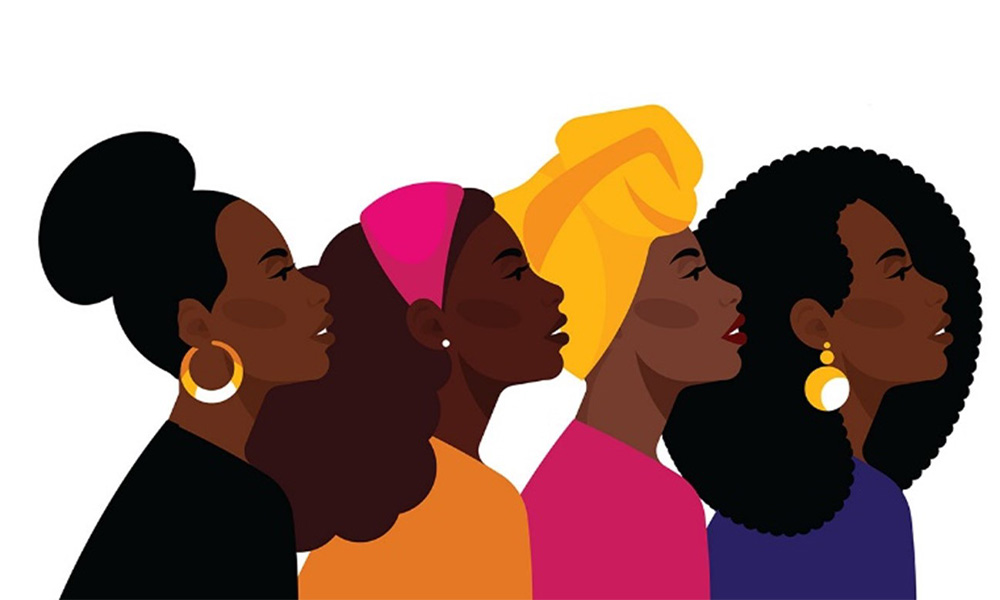The theme of this year’s Black History Month is ‘Saluting our Sisters’, paying homage to Black women who have had their contributions ignored, ideas appropriated, and voices silenced. In honour of this year’s theme, Alexis Curtis-Harris, Head of Equality, Diversity & Inclusion – Attraction and Communications at Penna examines whether the ‘Strong Black Woman’ narrative does more harm than good.
Black women are often celebrated for their incredible strength, and rightly so. We've fearlessly tackled challenges, shattered barriers, and come out even stronger each time. However, I’ve come to realise that the 'Strong Black Woman' narrative, despite its good intentions, comes with limitations and challenges, and honestly, it's started to do me more harm than good.
This narrative suggests an unyielding resilience, the ability to bear heavy burdens without complaining, and a constant commitment to self-sacrifice. While these traits might sound admirable, personally, they've often made me feel like I must hide my vulnerabilities, bury my struggles, and wear a mask of invincibility, even when I'm far from feeling that way. As I delve into the 'Strong Black Woman' narrative, it becomes evident that it's not about choosing between strength and vulnerability; it's about the courage to be authentic and express genuine emotions, debunking the stereotype that confines us to a single mould. The pressure to be unbreakable all the time has become quite a heavy load and, honestly, it's one I'm ready to put down.
The ‘Strong Black Woman’ stereotype is a concept society has long applauded and upheld. It's an ideal that I’ve encountered from an early age and one that appeared, on the surface, to embody the pinnacle of excellence.
So, am I saying here that Black women aren't strong? Absolutely not. But it's crucial to understand that strength, much like beauty, intelligence, or any other quality, is profoundly subjective. What one person perceives as strength, another may interpret differently.
For me, it's time to scrutinise why 'strength,' as often defined by society, has become the ultimate measure of a woman's worth and, more specifically, of a Black woman's worth. The 'Strong Black Woman' stereotype, despite its good intentions, is a distortion of reality and a misrepresentation of our true selves. It's not about negating our strength but rather recognising that we are multifaceted individuals with a wide range of qualities and experiences that extend far beyond any singular label.
For those who may not be aware, the ‘Strong Black Woman’ stereotype has deep historical roots originating from the experiences of Black women during slavery, evolving through cultural shifts and societal pressures. Stemming from the ‘Mammy’ stereotype and reinforced by the Civil Rights Movement, media portrayals, and the intersectionality of racism and sexism, it depicts Black women as unbreakable, emotionally stoic, and endlessly self-sacrificing. Now, don’t get me wrong, resilience is admirable, but the big issue arises when this stereotype pressures Black women to suppress vulnerabilities, seek help less often, and sacrifice their well-being for others.
But does that really, actually happen? Yes, more than you may think. Several research studies suggest that, when confronted with stress or trauma, Black women seek help less than other populations, particularly White women. I can tell you from personal experience, that I also unintentionally find myself doing this all the time.
Now, you might be wondering why I'm diving so deep into this topic, especially during a month that is very typically dedicated to celebration. Well, to put it simply, I'm just plain tired. Tired of the persistent lack of change in society’s perception and expectations of Black women, and tired of the toll on my mental and emotional well-being. So, I felt the need to take a step back, breathe new life into this narrative, reclaim its sentiment, and give it a fresh perspective. And I'm not just doing it for myself but for all my fellow sisters out there too.
Reclaiming the ‘Strong Black Woman’ narrative, to me, is a powerful act of self-definition and authenticity. It involves challenging the limitations that this stereotype imposes, which suggests that, as Black women, we must always be unyielding and self-sacrificing, even in the face of immense challenges. Instead, it means embracing the full range of emotions and experiences that we navigate daily. It's about recognising that strength doesn't require stoicism but rather the courage to express vulnerability when needed. It's an assertion of agency, a declaration that Black women define their own strength on their own terms.
My aim with this reclamation is also to foster a sense of community and support among Black women. By rejecting the stereotype's harmful aspects while celebrating our genuine strength, we break free from unrealistic expectations and show that true strength isn't diminished by vulnerability; it's enhanced by it. For me, this is an empowering journey of self-discovery, self-care, and resilience, asserting that, as Black women, we can be strong even when we are not conforming to society's narrow standards.
The 'Strong Black Woman' narrative is in need of a long-overdue transformation. It's high time that we break free from its confinements, acknowledge the diversity of Black women's experiences, and celebrate their strength in all its forms. As we celebrate this Black History Month and honour the theme of ‘Saluting our Sisters’, paying tribute to the remarkable Black women and their monumental contributions, let’s also salute their authenticity, vulnerability, and resilience in rewriting the narrative of strength.




